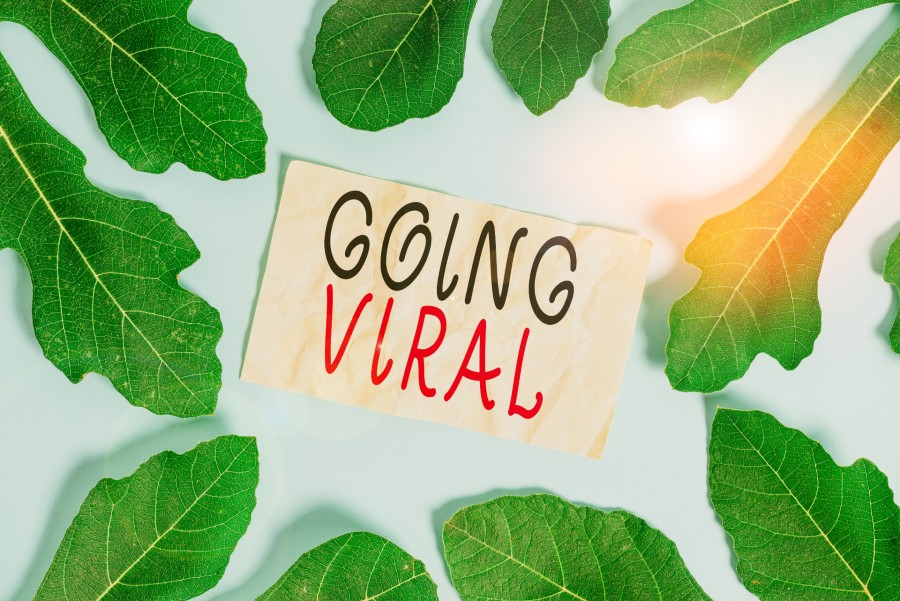Kelsie and I were presenting to a group of actors and film producers. We have experienced some social media success in the film industry. The very last question that came up was this: “Can you help us go viral?”
Most of them knew how we helped a small production company grow their social presence by leaps and bounds. They also knew that we helped solve the production company’s problem of lack of extras for their movies. The company asked us, “Can you help us get extras? We need about 100 for this next project.”
After implementing our strategy, we handed them a list of 5,800 willing extras for their upcoming movie shoot. We sort of felt bad because the number of emails and parents wanting their children to be movie stars was a bit overwhelming.
Yes, we went viral.
Lots of folks say there is no way to go viral. Like going viral is some magical land that exists in the clouds. But the reality is that when you scroll through your newsfeed on Facebook, you see viral posts all the time. It does happen, and it can happen to you as well.
We agree; there is no one sure-proof way to make it happen. But we have learned a lot from the handful of times we’ve experienced it firsthand, and we want to share with you some of the ingredients that have been consistent across those experiences.
Disclaimer: This is not an invitation for you to message us asking us to help you go viral. If your only goal is to go viral, you have already lost. It takes time to grow a healthy social media account. That is what we can help you do. Going viral is a byproduct of a healthy account.
Ingredient # 1: Your overall presence is healthy and alive.
We are all about establishing a living and healthy social media presence. Check out some of our previous posts if you want to know more about how to do this. Essentially, we are working towards loosening up the algorithm beast. The longer we please the algorithm, the more the algorithm begins to trust us.
Remember, Facebook is the one in control. You have to please Facebook before it will reward you. There are way too many businesses creating posts that look like advertisements. If that is you, everything else we are about to share is irrelevant.
Ingredient # 2: Your content is bold and significant.
Funny, relevant, or an opportunity: those are three major categories that nearly all viral posts fall under. We would also add the words bold or significant in front of those three. Sure, you can give an opportunity, but if it isn’t a significant or bold opportunity, then no one will care.
Also, we typically see that it is a combination of two of the three.
Ingredient # 3: A bigger fish pays attention.
Every single time, it felt like a tipping point for our viral posts came from a bigger fish paying attention to us. One time it was a rather large local brewing company that offered to join efforts with us. Another time it was a large newspaper that saw the need and was willing to join.
When the algorithm sees that a bigger fish is helping a smaller fish, the algorithm will want to help you too.
Ingredient # 4: “A watched pot never boils.”
As a kid, I spent a lot of time at Grandma’s house, and I loved to help her cook. She would always tell me as I stared at the boiling pot or the cookies in the oven, “A watched pot never boils.”
This one may sound a little more outlandish, but we are convinced there is some sort of correlation. Every time we have had a post go viral, it was while we weren’t watching it. I’ll give you an example.
Kelsie and I were in Mexico on vacation. We had “unplugged” from life and happened to check back in briefly to see how our kids were doing. One of our clients had reached out. A post we’d launched before leaving had gone viral. “Aaron, Kelsie, you know that post you put up a couple of days ago? Remember how you told us you think this one has potential to go viral? Yeah, well, it has, and I can’t keep up with the demand! Please help me!”
So we did, and we ended up with 5,800 extras.
But the point is this, don’t keep checking your posts over and over again to see how it is doing. For the clients that we work with, if we see a post coming that we think has potential to go viral, we implement a “no look” period with anyone on that account. Essentially for six hours after it is posted, we tell them all to stay off of their Facebook. Not off of their page, but off of Facebook entirely.
Facebook knows when you are on and off of their platform. They know if you keep checking a post to see how it is doing. The algorithm is asking, “Why do you keep checking your page? Do you think you should be rewarded for something you have produced?”
We told you it would sound outlandish.
Talk soon,
Aaron & Kelsie
- The Smile Above the Toilet - September 5, 2023
- Small Business Social Media Limits - June 10, 2022
- Most Facebook pages for companies are sick. Here’s how to get yours healthy. - January 5, 2022

